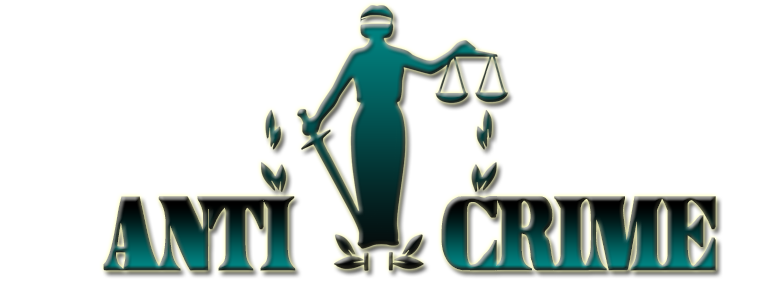Definition and Scope
Mass tort litigation involves multiple plaintiffs bringing lawsuits against one or more defendants for harm caused by a common product, practice, or event. These cases often arise from dangerous drugs, defective products, or environmental pollutants. Unlike class actions, where plaintiffs are treated as a single entity, mass torts allow each plaintiff to be treated as an individual, making it easier to address unique damages and injuries.
Common Types of Dangerous Drugs
Dangerous drugs can cause severe physical and emotional harm to consumers. The pharmaceutical industry sometimes introduces drugs that haven’t been adequately tested, leading to serious injuries or even fatalities. Common types of dangerous drugs involved in mass torts include:
- Prescription medications with harmful ingredients
- Drugs lacking adequate warning labels
- Medications causing unexpected side effects
Legal Grounds for Mass Tort Claims
Legal grounds for mass tort claims often include negligence, failure to warn, and product liability. Plaintiffs must prove that the defendant had a duty of care, breached that duty, and caused harm as a result. In cases involving dangerous drugs, this often means showing that the pharmaceutical company failed to conduct proper testing or did not disclose known risks. Extensive research and cooperation from medical professionals are usually required to build a strong case.
The Role of Specialized Mass Tort Lawyers
Expertise in Handling Complex Cases
Specialized mass tort lawyers are essential in managing the intricate details of multi-plaintiff cases. These attorneys have the knowledge and experience to navigate the complexities of mass tort litigation, which often involves medical, scientific, and legal challenges. Their expertise ensures that each plaintiff’s case is thoroughly investigated and presented effectively.
Coordination Among Multiple Plaintiffs
One of the key roles of mass tort lawyers is to coordinate the efforts of numerous plaintiffs. This involves organizing large groups, ensuring that all necessary documentation is collected, and maintaining clear communication among all parties. By doing so, they can present a unified front against the defendants, increasing the chances of a successful outcome.
Building Strong Legal Strategies
Mass tort lawyers develop robust legal strategies tailored to the specifics of each case. They leverage their understanding of laws related to negligence, product liability, and consumer protection to build compelling arguments. These strategies are designed to hold defendants accountable and secure fair compensation for the plaintiffs.
Proving Liability in Mass Tort Cases
In mass tort cases, proving liability is crucial. It involves showing that the defendant’s actions or negligence caused harm to the plaintiffs. This process can be complex, but it generally follows a few key steps.
Duty of Care and Breach
First, it’s essential to establish that the defendant owed a duty of care to the plaintiffs. For instance, drug companies must ensure their products are safe and inform users of any risks. If they fail to do this, they breach their duty. This breach can be something like hiding known side effects of a medication.
Causation and Damages
Next, plaintiffs must prove that their injuries were directly caused by the defendant’s breach of duty. This is known as causation. Evidence such as medical records can help link the injuries to the defendant’s actions. Additionally, plaintiffs need to show the specific damages they suffered, like medical bills or lost wages.
Gathering and Presenting Evidence
Collecting solid evidence is vital in mass tort cases. This can include internal documents, emails, and expert testimonies. Mass tort lawyers play a significant role in this process, using their expertise to build a strong case. They gather and present evidence to demonstrate the link between the defendant’s actions and the plaintiffs’ injuries.
The Process of Filing a Mass Tort Lawsuit
Filing a mass tort lawsuit involves several key steps, each crucial to building a strong case. Here’s a breakdown of the process:
Initial Investigation
The first step is a thorough investigation. Attorneys gather solid evidence of misconduct and damages. This includes reviewing medical records, collecting witness statements, and consulting experts. The goal is to establish a clear link between the defendant’s actions and the plaintiffs’ injuries.
Filing and Discovery
Once the investigation is complete, the attorney files the lawsuit in the appropriate court. The complaint outlines the allegations, injuries, and legal basis for the claim. During the discovery phase, both sides exchange information. This includes documents, expert opinions, and witness statements. Discovery helps both parties understand the strengths and weaknesses of the case.
Negotiation and Settlement
Throughout the litigation process, there may be opportunities for settlement negotiations. These negotiations aim to reach a mutually agreeable resolution without going to trial. Settlements can provide compensation to the plaintiffs more quickly and avoid the uncertainty of a trial. Deciding whether to settle or litigate involves weighing the potential benefits and risks of each option.
Benefits and Challenges of Mass Tort Litigation
Advantages for Plaintiffs
Mass tort litigation offers several advantages for plaintiffs. One of the primary benefits is the ability to pool resources. By joining forces, plaintiffs can share the costs and expertise needed to build a strong case against powerful defendants. This collective approach often leads to higher compensation, as the combined claims create a more compelling argument. Additionally, mass torts provide a streamlined process, making it more efficient than pursuing individual lawsuits.
Common Challenges
Despite the benefits, mass tort litigation comes with its own set of challenges. One significant issue is the complexity of managing a large number of plaintiffs and coordinating their claims. This can make the legal process lengthy and complicated. Furthermore, defendants in mass tort cases are often well-funded entities with substantial legal resources, making it crucial for plaintiffs to have strong legal representation. Another challenge is proving causation, especially when injuries develop over time, which can complicate the case.
Criticisms and Controversies
Mass tort litigation is not without its criticisms and controversies. Critics argue that these cases can burden the court system and lead to excessive litigation. There are also concerns about the fairness of the compensation distribution, as not all plaintiffs may receive equal settlements. Additionally, some believe that mass torts can be used as a strategy to force settlements, even when the evidence may not fully support the claims. Despite these criticisms, mass torts remain a powerful tool for holding large corporations accountable for widespread harm.
Recent Examples of Mass Tort Cases
Opioid Crisis Litigation
One of the most significant mass tort cases in recent years involves the opioid crisis. Pharmaceutical companies have faced numerous lawsuits for their alleged role in fueling the epidemic. These cases have resulted in massive settlements, highlighting the importance of holding companies accountable for widespread harm.
Volkswagen Emissions Scandal
Another notable example is the Volkswagen emissions scandal. The company was found to have installed software in their vehicles to cheat on emissions tests. This led to a series of mass tort lawsuits, resulting in substantial penalties and settlements.
Notable Dangerous Drug Cases
Past mass tort cases involving dangerous drugs have resulted in massive settlements based on much weaker medical evidence. These cases often involve drugs that were found to have severe side effects that were not adequately disclosed to consumers. Some well-known examples include lawsuits related to drugs like Vioxx and Elmiron.
Choosing the Right Mass Tort Attorney
When facing a mass tort case, having the right legal team in your corner can make all the difference. Here are some key factors to consider when choosing a mass tort attorney:
Importance of Experience
Experience is crucial in mass tort cases. Look for attorneys who have years or even decades of handling these complex cases. Trial experience is invaluable, as mass torts often require extensive litigation.
Evaluating Legal Strategies
A good mass tort lawyer will have a well-thought-out strategy for your case. They should be able to explain their approach clearly and how they plan to gather evidence, negotiate settlements, and, if necessary, take your case to trial.
Client-Attorney Collaboration
Effective communication between you and your attorney is essential. Your lawyer should be available to answer your questions and keep you updated on the progress of your case. Client-attorney collaboration ensures that your unique needs and concerns are addressed throughout the legal process.





